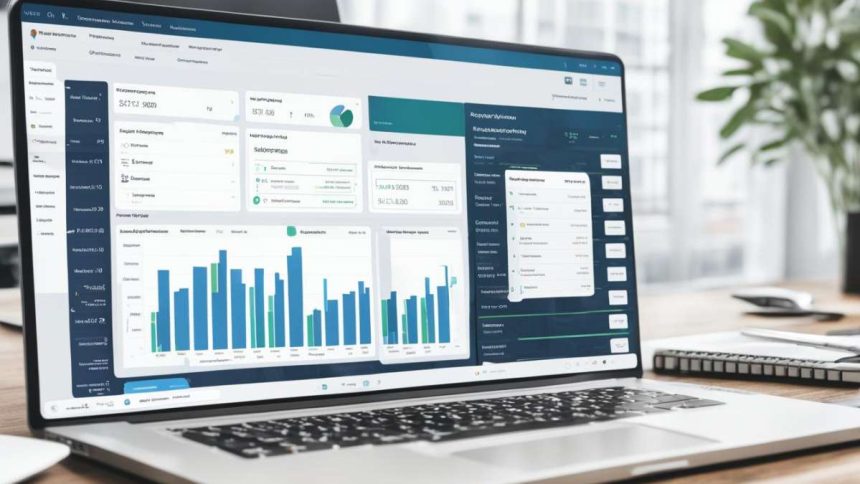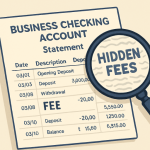In the complex world of corporate finance, Chief Financial Officers (CFOs) oversee a myriad of responsibilities, from financial planning and risk management to ensuring compliance with ever-evolving regulations. One of the critical areas that often require meticulous attention is the management of leased real estate assets. The advent of lease management software has revolutionized how organizations handle their leases, offering numerous benefits that can significantly enhance financial oversight and operational efficiency. Here’s why CFOs must use lease management software for their leased real estate assets.
Streamlining Lease Administration
Managing a portfolio of leased properties involves tracking vast data, including lease terms, payment schedules, and renewal dates. Traditional methods, such as spreadsheets, are prone to errors and can be cumbersome. Lease management software centralizes all lease-related information in a single, easily accessible platform. This centralization streamlines lease administration by automating rent calculations, payment tracking, and lease renewals. For CFOs, this means less time spent on administrative tasks and more time available for strategic decision-making.
Ensuring Compliance with Accounting Standards
Introducing new lease accounting standards, such as ASC 842 and IFRS 16, has added a layer of complexity to lease management. These standards require companies to recognize lease assets and liabilities on their balance sheets, which can be daunting without the right tools. Lease management software is designed to ensure compliance with these standards by providing accurate and timely calculations of lease liabilities, right-of-use assets, and lease expenses. Using lease management software, CFOs can ensure their financial statements are compliant, accurate, and transparent, reducing the risk of regulatory scrutiny and financial misstatements.
Enhancing Financial Reporting and Analysis
Accurate financial reporting is essential for effective decision-making and maintaining investor confidence. Lease management software offers robust reporting capabilities that provide CFOs with real-time insights into their lease portfolios. These tools can generate detailed reports on lease expenses, lease commitments, and key financial metrics, enabling CFOs to analyze the financial impact of their lease agreements. With this information, CFOs can make informed decisions about lease renewals, terminations, and renegotiations, ultimately optimizing the organization’s real estate portfolio.
Improving Cash Flow Management
Effective cash flow management is critical for maintaining financial stability and supporting growth initiatives. Lease management software helps CFOs manage cash flow more effectively by providing visibility into upcoming lease payments and identifying opportunities for cost savings. For instance, the software can highlight leases with favorable renegotiation terms or identify underutilized spaces that could be subleased or vacated. By proactively managing lease expenses, CFOs can improve cash flow, reduce costs, and allocate resources more efficiently.
Facilitating Strategic Planning
Leased real estate assets often represent a significant portion of a company’s expenses. Therefore, strategic planning around these assets is crucial for long-term success. Lease management software provides CFOs with the data and tools to conduct thorough analyses and develop strategic plans. For example, the software can help identify trends in lease costs, assess the impact of market changes on lease agreements, and evaluate the financial implications of expanding or contracting the real estate portfolio. With this information, CFOs can make strategic decisions aligning with the company’s overall business goals and objectives.
Enhancing Collaboration and Communication
Managing leased real estate assets involves coordinating various departments, including finance, legal, and operations. Lease management software enhances collaboration and communication by providing a centralized platform where all relevant information is stored and easily accessible. This transparency ensures that all stakeholders have access to the same data, reducing the risk of miscommunication and ensuring everyone is on the same page. For CFOs, this means smoother collaboration with other departments and more cohesive management of leased assets.
Reducing Risk and Enhancing Control
Risk management is a core responsibility of CFOs, and lease management software is crucial in mitigating risks associated with leased real estate assets. The software provides tools for tracking critical dates, such as lease expirations and renewal options, ensuring that important deadlines are not missed. The software’s robust audit trails and reporting capabilities also enhance control over lease-related activities, reducing the risk of errors, fraud, and non-compliance. By using lease management software, CFOs can effectively enhance their control over leased assets and mitigate potential risks.
Supporting Growth and Scalability
As companies grow, so do their real estate needs. Managing an expanding portfolio of leased properties can quickly become overwhelming without the right tools. Lease management software is designed to scale with the organization, accommodating additional leases and providing the flexibility needed to manage a growing portfolio. For CFOs, this scalability ensures that the company can manage its leased assets efficiently, regardless of how large the portfolio becomes.
The Strategic Edge
Effective management of leased real estate assets is more important in today’s dynamic business environment. For CFOs, lease management software offers a powerful solution that streamlines lease administration, ensures compliance with accounting standards, enhances financial reporting and analysis, improves cash flow management, facilitates strategic planning, enhances collaboration, reduces risk, and supports growth. By leveraging the capabilities of lease management software, CFOs can enhance their oversight of leased assets, drive operational efficiency, and contribute to the overall success of their organizations. Embracing this technology is not just a matter of convenience; it’s a strategic imperative for modern finance leaders looking to gain a competitive edge.
Lynn Martelli is an editor at Readability. She received her MFA in Creative Writing from Antioch University and has worked as an editor for over 10 years. Lynn has edited a wide variety of books, including fiction, non-fiction, memoirs, and more. In her free time, Lynn enjoys reading, writing, and spending time with her family and friends.















